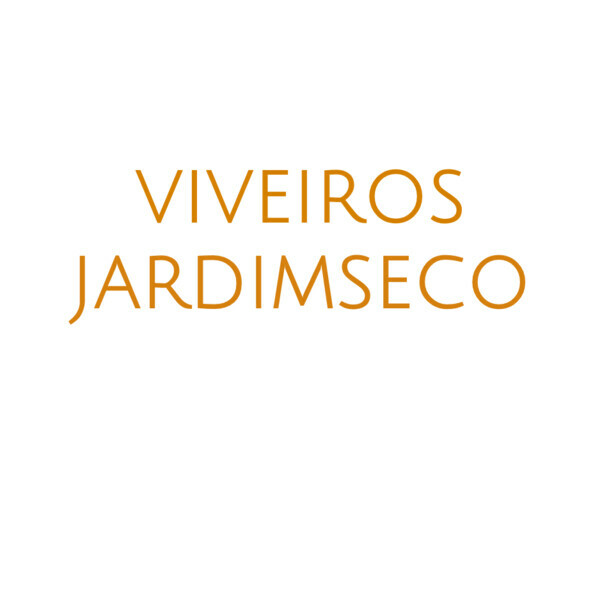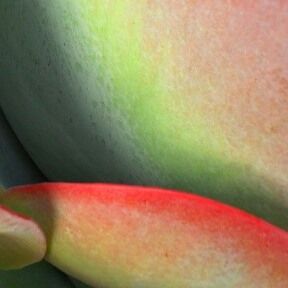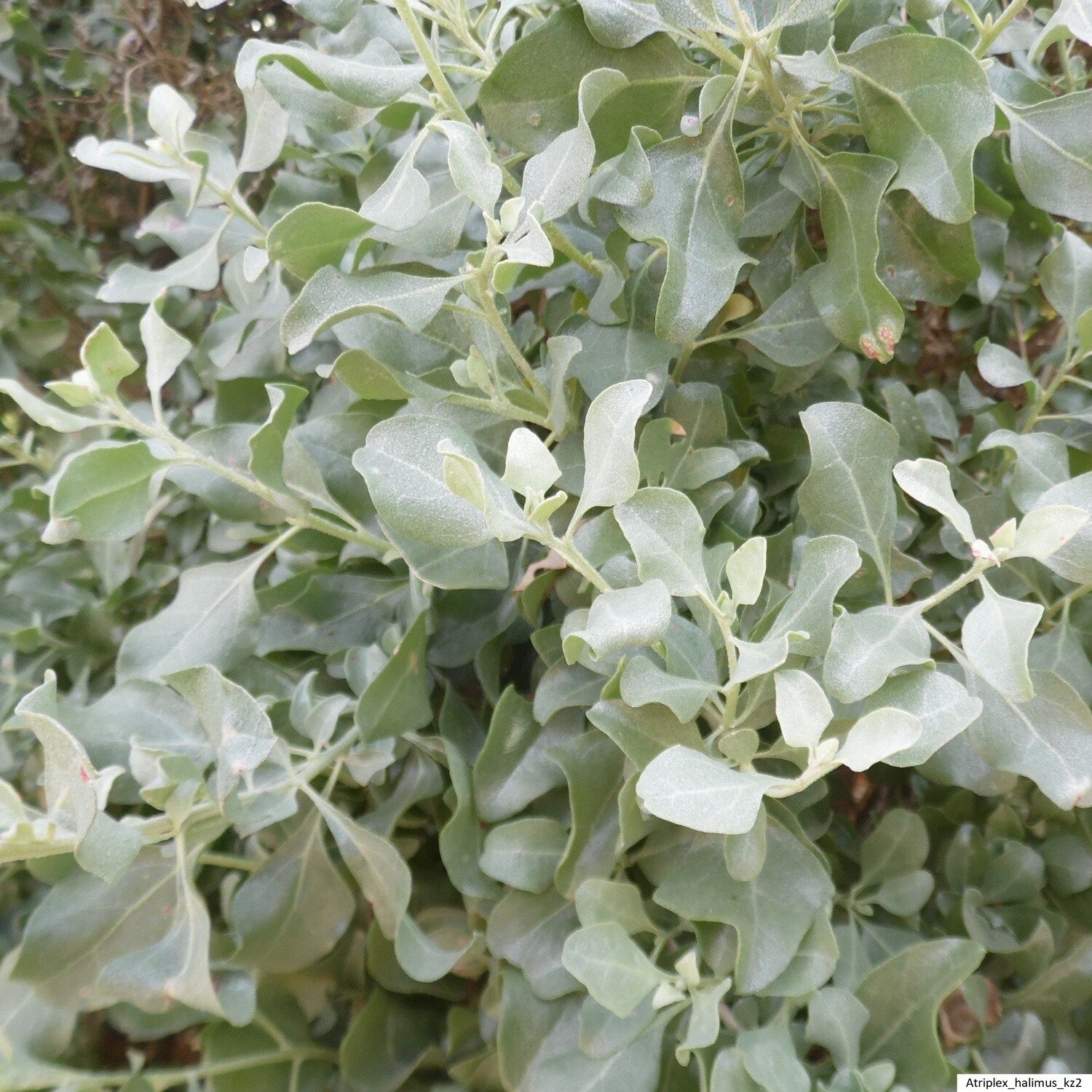
Atriplex halimus
| Quantity | Price per item | Discount |
| 5 plants | €5,05 | 16% off |
Atriplex halimus is an evergreen halophytic shrub that grows up to 2 metres high and 2-3 metres wide. It is widely distributed in arid and semi-arid regions throughout the Mediterranean Basin, North and East Africa and the Arabian Peninsula. It is also known by the common names of sea pulsane, , sea orache, shrub orache, and silver orache, and is associated with coastal wetlands, but in dry or sandy soils. It is also hardy and can withstand frost (-5 and -10°C) but not when associated with wet soil conditions.
The dense, silvery-grey ovate leaves are the main feature of this plant, as the flowers, which appear in June and July, are of little garden interest. The species is monoecious (individual flowers are either male or female, but both sexes can be found on the same plant) and is pollinated by wind.
Atriplex halimus prefers unimproved, well-drained, poor soils and will not tolerate wet or fertile conditions, although it will grow well in very sandy soils. This is a plant that thrives in exposed locations, preferring full sun and will not do well in shade where it will quickly become weak and leggy, but if these criteria are met it is easy to grow. The growth habit is multi-stemmed and it makes a good hedge, responding well to pruning and shaping.
More Details
The leaves are both edible and used as fodder for grazing animals, particularly sheep and goats, and it is often grown as fodder on marginal land because of its tolerance to severe drought conditions, growing well in very alkaline and saline soils. In addition, A. halimus is a useful crop for improving these degraded and marginal lands because it contributes to the improvement of phytomass (total plant biomass), thereby helping to protect and improve the soil. It has a deep root system, which helps to stabilise the soil and reduce soil erosion, and the plant is an important contributor to functioning ecosystems, as reflected in its promotion of soil biota (the enormous diversity of organisms, including microorganisms (i.e. bacteria, fungi) and soil fauna (microscopic and macroscopic animals)).
As well as being a food crop for mammals and arthropods, it is also used as a salad and leaf vegetable in many parts of the world.
Specialising in growing plants for dry mediterranean landscapes
We are a plant nursery in the Algarve specialising in dry mediterranean species. We propagate and grow our own stock in conditions they are likely to endure when they are planted out.
We grow plants that are adapted to the dry land conditions in Portugal and southern Spain, both mediterranean perennials and succulents.
We choose plants that require very little water and maintenance. We produce a range of dry land plants that are typical of the worlds mediterranean regions. These are available to order ready for planting in the wetter months of the year. Please order the plants you need and we’ll have them ready at the best time for planting.
To ensure your new plants adapt and establish quickly, we produce them in special anti-spiral root pruning containers and a range of fibre pots (no plastic waste) with our own tried and tested growing media.
Viveiros Jardimseco - Plantas de terra seca

Viveiros Jardimseco
Tavira, Algarve
Please note we have no retail outlet or garden centre and are not open to the public. For more information you can contact us here.
Plantas adaptadas à seca - produzimos plantas adaptadas às condições de Portugal e Sul de Espanha, tanto espécies mediterrânicas como suculentas.
Oferecemos uma gama de espécies típicas das zonas climáticas mediterrânicas em todo o mundo.
